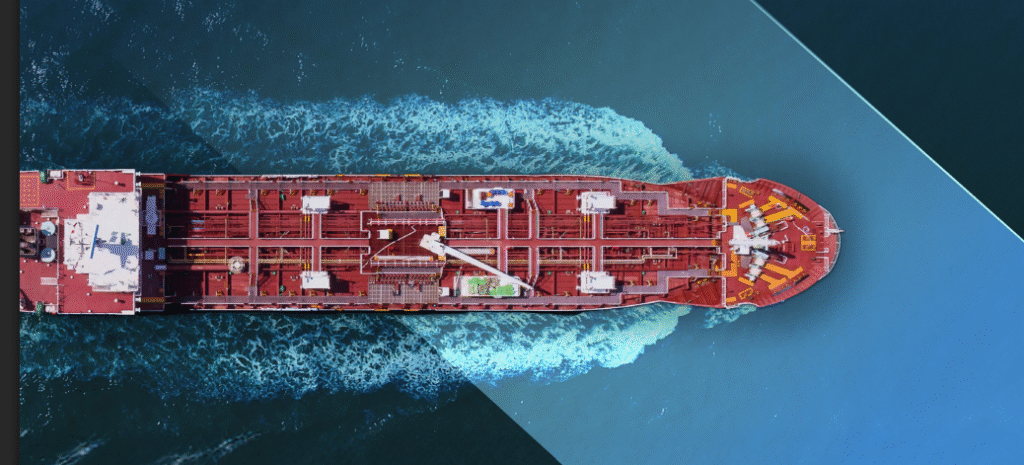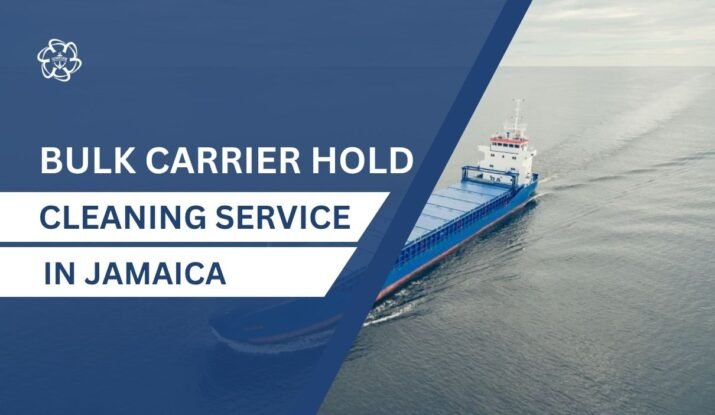The hold cleaning service in Jamaica plays a vital role in supporting the integrity and compliance of global maritime shipping operations. As Jamaica continues to serve as a strategic maritime node in the Caribbean, particularly through major ports such as the Port of Kingston, Montego Bay, Port Antonio, and Port Esquivel, the need for efficient, environmentally compliant, and precise cargo hold cleaning becomes indispensable.
From bulk carriers transporting grain, cement, bauxite, or fertilizers to general cargo vessels, each turnaround at a Jamaican port demands strict adherence to international standards such as those defined by the International Maritime Organization (IMO) and the MARPOL Convention. The hold cleaning service in Jamaica ensures vessels meet these regulatory and operational requirements, avoiding cross-contamination, port detainment, or cargo rejection.
Importance of Hold Cleaning in the Jamaican Maritime Sector
Due to Jamaica’s prominence in the Caribbean trade and logistics chain, bulk carrier traffic through its ports remains substantial. Efficient hold cleaning service in Jamaica is not merely a maintenance task; it’s a critical regulatory requirement that directly influences cargo acceptance and operational continuity.
The hold cleaning service in Jamaica helps:
- Meet the standards of charter parties, particularly for sensitive cargo like grains or minerals.
- Prepare vessels for inspection by port state control authorities and cargo surveyors.
- Prevent corrosion and structural degradation of the cargo hold due to residues from previous shipments.
- Align operations with environmental guidelines, especially waste disposal per MARPOL Annex V regulations.
- Increase vessel readiness, reduce turnaround times, and improve commercial viability.
In line with Jamaica’s strategic port development initiatives and sustainability commitments, cargo holds must be cleaned and inspected meticulously, especially when transitioning between different cargo types.

Common Cargo Types Requiring Hold Cleaning in Jamaica
Jamaican ports such as Port of Kingston, Montego Bay, and Port Esquivel handle a variety of dry and liquid bulk cargo. The need for a hold cleaning service in Jamaica depends heavily on the previous cargo carried and the cargo to be loaded next. Some examples include:
- Grains and Pulses: These demand an extremely high level of cleanliness to prevent contamination and insect infestation. A hold cleaning service in Jamaica ensures that bulk carriers are suitable for food-grade cargo.
- Bauxite and Alumina: Jamaica is a major exporter of these minerals. Cleaning is essential before switching to clean cargo or to avoid corrosive effects.
- Fertilizers and Urea: These are hygroscopic and corrosive, requiring removal of all residues and moisture.
- Cement and Coal: Dusty cargo like cement leaves heavy residues that can harden over time, requiring specialized cleaning methods such as scraping or chemical-assisted washing.
Each of these cargo types has specific hold cleaning needs that only trained professionals can handle, particularly in accordance with IMO protocols.
Hold Cleaning Procedures Used in Jamaica
To carry out hold cleaning service in Jamaica, a variety of techniques are employed based on the type of residue, vessel size, and compliance requirements. These include:
1. Manual Cleaning
Involves physical scraping, sweeping, and brushing of cargo holds. This method is labor-intensive but often essential after cement, coal, or solidified cargo. Ports like Port Antonio and Rocky Point handle vessels where this method is commonly used.
2. High-Pressure Water Jet Cleaning
Water jet systems are used to remove residue and dust from the cargo hold surfaces. It’s a preferred method after dry bulk cargoes like sugar, grain, and coal. This method is widely utilized at Port of Kingston due to its modern berthing facilities.
3. Chemical Cleaning
For greasy or contaminated cargo residues like oil-based fertilizers or oily cargoes, MARPOL-compliant chemicals are used. These cleaning agents help loosen contaminants and are followed by water rinsing.
4. Ventilation and Drying
Post-cleaning, hold compartments are thoroughly ventilated and dried to prevent mold, rust, and corrosion. This is a critical step before loading moisture-sensitive cargo like rice or wheat.
5. Sludge Disposal
All collected waste and sludge are disposed of per MARPOL Annex V, using certified waste reception facilities available at Jamaican ports. No discharge is permitted into the sea, reinforcing the country’s environmental responsibility.
Regulatory Compliance and Documentation
The hold cleaning service in Jamaica must be fully compliant with global and national maritime regulations. This includes:
- Pre-cleaning inspection: A checklist-based visual and physical inspection of residues, stains, and damage.
- Cleaning log maintenance: Detailed logs recording the type of cleaning performed, chemicals used, time taken, and responsible personnel.
- Post-cleaning inspection: Conducted by onboard officers or appointed surveyors to ensure readiness for cargo loading.
- Documentation: Issuance of a cleaning certificate or cleaning log, often required by charterers, P&I clubs, or port authorities.
Proper documentation is especially crucial at ports like Montego Bay, where grain exports and cruise cargoes demand stringent inspection protocols.
Challenges in Hold Cleaning in Jamaica
Despite the strategic position of Jamaican ports and modern facilities, executing hold cleaning service in Jamaica can present certain challenges:
- Weather Dependency: Sudden tropical storms can delay cleaning operations, especially in open berths.
- Residue Type: Solidified or caked residues require extra time and labor.
- Berth Availability: In high-traffic seasons, vessels may experience delays in securing suitable berths for cleaning.
- Waste Management: Ports must manage hold cleaning waste within the scope of MARPOL without compromising efficiency.
Professional services help overcome these hurdles through timely operations, crew training, and use of port-approved waste reception arrangements.
Port Coverage for Hold Cleaning in Jamaica
Jamaica’s ports are strategically distributed and equipped to support dry and bulk cargo, containerized shipping, and cruise liners. Here are the key ports where hold cleaning service in Jamaica is regularly undertaken:
- Port of Kingston – Jamaica’s main commercial shipping hub, handling a significant volume of container and bulk cargo.
- Montego Bay – A vital port for cruise and commercial trade, often involved in food cargo handling.
- Port Antonio – A smaller port specializing in niche exports like bananas and citrus fruits.
- Port Esquivel – Primarily used for bauxite and alumina export, requiring post-mineral cleaning protocols.
- Rocky Point – Another port frequently involved in mineral and agricultural bulk shipments.
- Ocho Rios – While known for tourism, cargo vessels also require periodic hold maintenance services here.
Each port is supported by port waste reception facilities and adheres to Jamaican Maritime Authority guidelines and international protocols under IMO.
Environmental and Safety Considerations
Hold cleaning service in Jamaica also aligns with Jamaica’s commitment to environmental sustainability under its Blue Economy framework. Therefore:
- All cleaning chemicals used are biodegradable and non-toxic.
- No gray water or waste discharge is allowed during cleaning operations.
- Cleaning is performed by trained personnel with appropriate PPE and enclosed space safety training.
- Compliance with port emergency protocols and fire safety standards is enforced.
Safety is a cornerstone, not an afterthought, in ensuring both environmental stewardship and operational excellence.
When to Schedule a Hold Cleaning Service in Jamaica?
Timing is crucial to avoid delays and ensure readiness for the next charter. You should schedule hold cleaning service in Jamaica when:
- There is a change from dirty to clean cargo.
- Preparing for inspection by port authorities or buyers.
- After discharging corrosive or abrasive cargo.
- Switching from mineral to grain or food cargo.
- Before drydock inspections or sale of the vessel.
Advance booking and pre-cleaning surveys help eliminate inefficiencies and allow for smooth port transitions.
Why Choose Professional Hold Cleaning in Jamaica?
Choosing a reliable provider for hold cleaning service in Jamaica ensures:
- Faster turnaround with minimal delays.
- IMO and MARPOL compliance.
- Reduced risk of demurrage or penalties.
- Enhanced safety for crew and environment.
- Full documentation and inspection readiness.
Our team is available 24/7 to assist shipowners, charterers, and agents in ensuring timely, efficient, and regulation-compliant hold cleaning.
Frequently Asked Questions (FAQs)
Q1: Is hold cleaning required at every Jamaican port?
Yes, especially when switching between incompatible cargo types or loading food-grade materials. Each port has its inspection protocols.
Q2: How long does a typical hold cleaning service take in Jamaica?
Depending on residue type and weather conditions, it may range from 8 to 24 hours.
Q3: Are chemicals used in the cleaning process safe?
Yes, all chemicals are MARPOL-compliant and environmentally friendly.
Q4: Can hold cleaning be scheduled during cargo operations?
No. Cleaning should only occur when holds are empty to ensure safety and effectiveness.
Q5: Do you provide documentation for inspections?
Absolutely. A cleaning certificate or log is issued upon completion for port and charterer review.
Contact Us
To book or inquire about hold cleaning service in Jamaica, reach out to:
- Email: ops@marinesupercargo.com
- Phone: +91 7080050720
- Website: marinesupercargo.com


